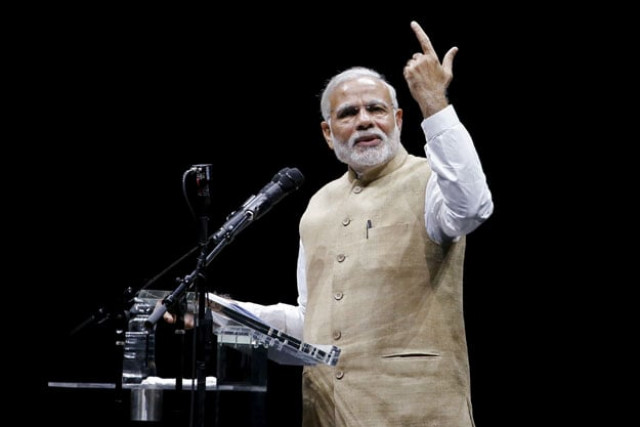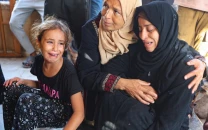India's Modi seeks to cement power as key state votes
The Indian leader urged people to come out and vote "in large numbers" as polls opened

PHOTO: REUTERS
The Indian leader, who has promised billions of dollars for development in Bihar, urged people to come out and vote "in large numbers" as polls opened at 0700 hours (1300 GMT).
"I particularly urge my young friends to cast their vote," he tweeted.
Modi and his Hindu nationalist Bharatiya Janata Party (BJP) won a landslide victory in general elections last year.
Read: India PM's reform push faces crunch test in Bihar vote
But his government has been unable to push promised reforms past India's upper house of parliament, where it lacks a majority, making success in state elections crucial.
Modi has gone all out to secure victory in Bihar after his party suffered a humiliating defeat in February elections for the New Delhi state assembly to a fledgling anti-corruption party.
His National Democratic Alliance is hoping to wrest control of Bihar state with a promise of economic development in a state where two-thirds of people lack access to electricity.
"What is most important for us is jobs," college student Sangeeta told reporters outside a polling booth in Bihar early Monday.
"If there are jobs, the youth won't have to leave the state and go elsewhere for employment."
Modi is up against an unlikely alliance of two powerful local leaders, Chief Minister Nitish Kumar and his predecessor Lalu Prasad Yadav, who has served time in prison for corruption.
Their rivalry goes back decades, but both men -- who command widespread support among the lower castes -- have put their differences aside to thwart Modi.
Read: Looking for reform success, India's Modi readies electricity rescue plan
Bihar, India's third-most populous state, has never been ruled by BJP on its own with elections being traditionally won by regional parties and alliances.
Many of its 104 million people still vote along caste lines.
Voting will be held in five phases, with results due on November 8.
Armed police were stationed at polling booths Monday as voters queued to cast their ballots across 10 districts of Bihar, one of India's most populated and impoverished states.
Nearly 10 million voters are eligible to vote in the first phase and there are 583 candidates.
While the BJP has a majority in the lower house of the parliament, it has only about a quarter of the 245 members in the upper house, where seats are distributed based on the strength of political parties in state assemblies.
That has allowed the opposition parties to block the government's critical land, taxation and other legislative reforms needed to overhaul the economy.



















COMMENTS
Comments are moderated and generally will be posted if they are on-topic and not abusive.
For more information, please see our Comments FAQ